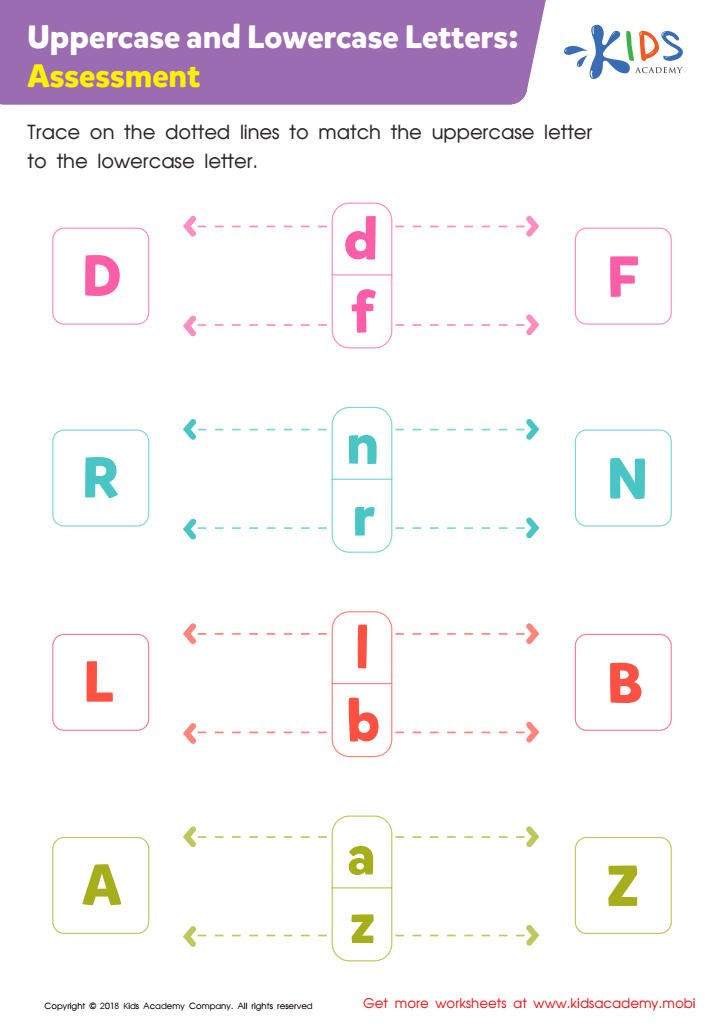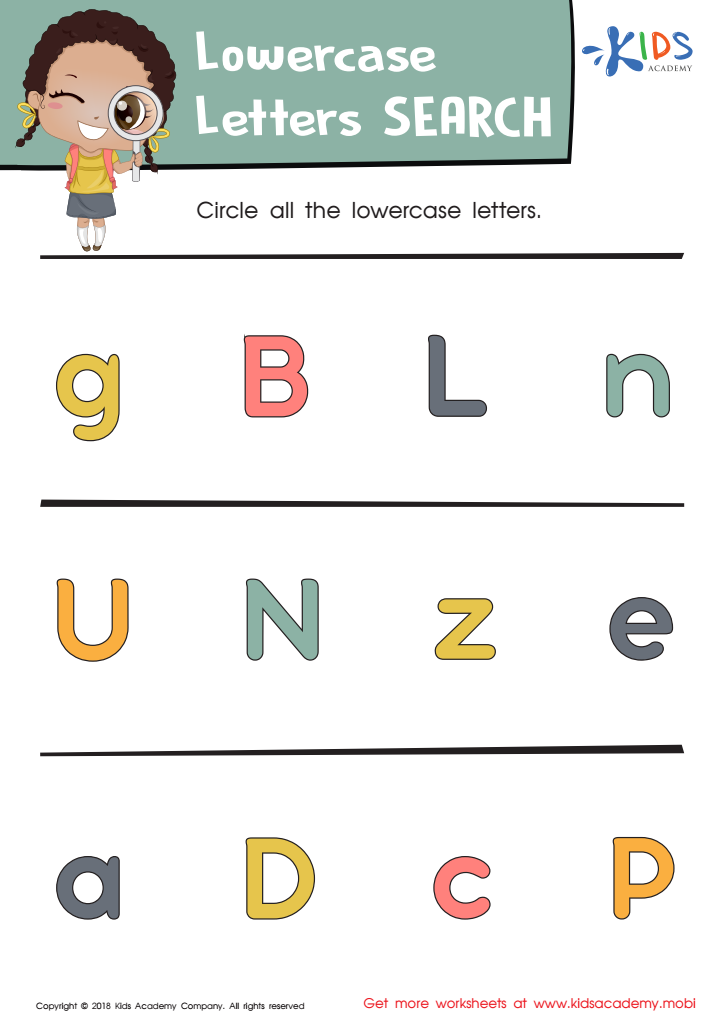Lowercase/Small Letters Worksheets Activities With Answers for 6-Year-Olds
2 filtered results
-
From - To


Uppercase and Lowercase Letters: Assessment Worksheet


Lowercase Letters Search: Assessment Worksheet
Lowercase/Small Letters Worksheets Activities with Answers are an invaluable resource for both educators and learners in the journey of mastering the alphabet. Understanding and properly utilizing lowercase letters are foundational steps in the development of literacy skills. These activities not only enhance letter recognition but also improve writing and reading fluency. Let’s delve into why these worksheets are so beneficial.
Firstly, Lowercase/Small Letters Worksheets provide structured practice in identifying and differentiating between letters in their lowercase form. Since the majority of written text is in lowercase, it is crucial for learners to become familiar with these forms early on. Through engaging activities, learners can reinforce their understanding of each letter, its shape, and its sound, laying a strong foundation for literacy skills.
Moreover, Worksheets Activities With Answers offer a guided learning experience. They allow learners to practice at their own pace and then check their work against the provided answers. This immediate feedback loop is vital for learning, enabling students to recognize and correct their mistakes independently. Such a process fosters self-confidence and encourages learners to take charge of their learning journey.
Furthermore, incorporating Lowercase/Small Letters Worksheets into daily learning routines helps in developing fine motor skills. As learners trace, write, and color letters, they enhance their hand-eye coordination and pencil grip, skills that are essential for effective writing.
Additionally, these worksheets often come in varied and creative formats, making learning fun and engaging. Whether it’s through matching games, letter hunts, or fill-in-the-blank exercises, Lowercase/Small Letters Worksheets Activities with Answers keep learners motivated and interested. This variety ensures that learning doesn’t become monotonous, catering to different learning styles and preferences.
In conclusion, Lowercase/Small Letters Worksheets Activities with Answers are a crucial tool in early education. They not only support the development of literacy skills but also foster independence, confidence, and a love for learning. Through repetitive practice and instant feedback, these activities pave the way for successful reading and writing experiences.
 Assign to My Students
Assign to My Students




.jpg)











